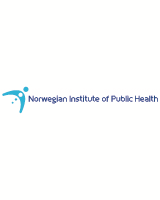We have conducted a systematic review of randomised controlled trials where interventions were implemented for preventing cardiovascular disease among individuals without established cardiovascular disease but who had been diagnosed with hypertension, hyperlipidaemia, diabetes, or otherwise assessed as being at high risk. The quality of the documentation varied considerably.
The results indicate that aspirin may prevent myocardial infarction. However, the quality of the evidence was low, and the potential benefit must be balanced against the risk of bleeding.
We found high-quality evidence that antihypertensive and lipid-lowering medication reduces the risk of cardiovascular disease. Among the lipid lowering drugs, the evidence is strongest for statins. Evidence from comparative studies of different antihypertensive drugs did not convincingly show that particular drugs or drug classes were superior. The same can be said for antihypertensive medication for persons with diabetes. Evidence in support of beta-blockers and alpha-blockers was somewhat weaker than for other drug classes.
For glucose-lowering medication, the results were mixed and the quality of evidence generally low. The results indicate that metformin and acarbose can prevent cardiovascular disease. The results for acarbose were from a study of persons with impaired glucose tolerance. We did not find evidence that sulphonyurea or rosiglitazone reduce the risk of cardiovascular disease.
We identified several studies of multifactorial interventions, usually a combination of lifestyle advice and medication. The results pointed in different directions; it was difficult to conclude whether, or to what extent, such interventions can be expected to have an effect. We included two studies of dietary supplements, one of omega-3-fatty acid, and another of E-vitamin. The results were not convincing with regards to a possible cardiovascular protective effect.
More knowledge is needed about the effects of nonpharmacological interventions.
Preliminary version: HTML in process
- NLM CatalogRelated NLM Catalog Entries
- Review Moderately Elevated Blood Pressure: A Systematic Review[ 2008]Review Moderately Elevated Blood Pressure: A Systematic ReviewSwedish Council on Health Technology Assessment. 2008 Sep
- Review Moderately Elevated Blood Pressure: A Systematic Review[ 2004]Review Moderately Elevated Blood Pressure: A Systematic ReviewSwedish Council on Health Technology Assessment. 2004 Oct
- Review Behavioral Counseling to Promote a Healthy Lifestyle for Cardiovascular Disease Prevention in Persons With Cardiovascular Risk Factors: An Updated Systematic Evidence Review for the U.S. Preventive Services Task Force[ 2014]Review Behavioral Counseling to Promote a Healthy Lifestyle for Cardiovascular Disease Prevention in Persons With Cardiovascular Risk Factors: An Updated Systematic Evidence Review for the U.S. Preventive Services Task ForceLin JS, O'Connor EA, Evans CV, Senger CA, Rowland MG, Groom HC. 2014 Aug
- Review Lipid Screening in Childhood for Detection of Multifactorial Dyslipidemia: A Systematic Evidence Review for the U.S. Preventive Services Task Force[ 2016]Review Lipid Screening in Childhood for Detection of Multifactorial Dyslipidemia: A Systematic Evidence Review for the U.S. Preventive Services Task ForceLozano P, Henrikson NB, Morrison CC, Dunn J, Nguyen M, Blasi P, Whitlock EP. 2016 Aug
- Review Lipid Screening in Childhood and Adolescence for Detection of Familial Hypercholesterolemia: A Systematic Evidence Review for the U.S. Preventive Services Task Force[ 2016]Review Lipid Screening in Childhood and Adolescence for Detection of Familial Hypercholesterolemia: A Systematic Evidence Review for the U.S. Preventive Services Task ForceLozano P, Henrikson NB, Dunn J, Morrison CC, Nguyen M, Blasi PR, Anderson ML, Whitlock E. 2016 Aug
- Primary Prevention of Cardiovascular Disease, with Emphasis on Pharmacological I...Primary Prevention of Cardiovascular Disease, with Emphasis on Pharmacological Interventions
Your browsing activity is empty.
Activity recording is turned off.
See more...
